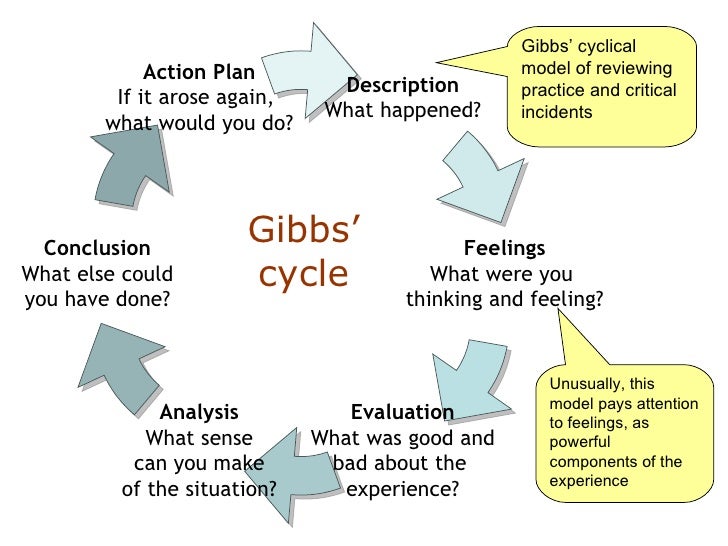Through the online unit, I have learnt so much about reflection. Reflective writing was never something I was good at throughout school. I didn’t really do any more than describe the event and talk about my thoughts and feeling at the time. I now realise that there is a lot more to reflection, and had I known this at the time my work would have significantly improved.
Reflection is an action in learning. It is an activity that provides us with proof that we have stood back from an event, been able to be critical of ourselves and our work, and even see things from someone else’s point of view. Reflection is taking things a step further than simply describing your thoughts and feelings.
Why reflect?
I’ve discovered through doing the online unit that there are many reasons why it is beneficial to reflect. Reflection gives us the chance to gain a lot more knowledge on our work, and deepen our understanding. We can consider the way in which we learn. If we reflect, and evaluate our work, we can create a plan of action for the next time: how will we deal with this if it happens again? What would I do better next time?
To me, reflection means looking back. So far in my course, I have taken notes during lectures and then reflected on them at night: looked back on my notes. If I don’t understand something, I simply research it to ensure I do know what it means for future reference. Reflection allows us to resolve uncertainty. It allows us to empower ourselves as individual people. When you reflect on something, I think you get a sense of purpose. You feel like what you have done is worth doing, because you’ve taken more from it than the simple knowledge.
The ability to be critical of yourself is crucial in life. If you have this skill you will constantly be learning and growing. You are able to consider what you have done, and know how to improve. Reflection helps to develop this important life skill, hence why it is important to constantly reflect on your work.
‘It is not sufficient simply to have an experience in order to learn. Without reflecting upon this experience it may quickly be forgotten, or its learning potential lost. It is from the feelings and thoughts emerging from this reflection that generalisations or concepts can be generated. And it is generalisations that allow new situations to be tackled effectively.’ (Gibbs 1988)
In Learning by Doing, Gibbs (1988) outlines the stages for a ‘Structured Debriefing’, which are based on Kolb’s (1984) Experiential Learning Cycle and which encourage deeper reflection. This includes:
| Description | What is the stimulant for reflection? ( incident, event, theoretical idea ) What are you going to reflect on? |
| Feelings | What were your reactions and feelings? |
| Evaluation | What was good and bad about the experience? Make value judgements. |
| Analysis | What sense can you make of the situation? Bring in ideas from outside the experience to help you. What was really going on? |
| Conclusion (general) | What can be concluded, in a general sense, from these experiences and the analyses you have undertaken? |
| Conclusion (specific) | What can be concluded about your own specific, unique, personal situation or ways of working? |
| Personal action plans | What are you going to do differently in this type of situation next time? What steps are you going to take on the basis of what you have learnt? |
The above evidence shows us how to successfully and fully reflect on something. If we go through each stage above and answer it according to our work or experience, we can get the most we possibly can out of reflection. From the online unit about reflection, this piece of information has been the most helpful resource to me. I feel this model explains reflection really well, and shows me exactly how to self-evaluate anything I’ve done. I feel it is very thorough and anyone who is to follow this should get a really positive outcome.

From personal experience, I already feel myself questioning everything I do. I am evaluating myself, and my work more often and I feel like it is really helping me to understand why I do what I do. Reflection is really important and I feel that it is crucial that everybody does it. It helps us to go through life with an real understanding for everything.
Reflection is definitely something I want to include in the classroom in the future. I think it is really important for young children to look at what they’ve done. If they see the things they’ve done well it will have a definite improvement on their confidence. Similarly, if they see the things they haven’t done so well in, they’ll understand what they need to do to improve. A regular time set aside for reflection would be really beneficial in the classroom. Not only does it allow for the teacher to track how pupils are doing, but do the children get to see how they’re progressing themselves. If they start this at primary school age, they are guaranteed to be able to go on through life using constructive criticism—a skill that they’ll definitely need!

